Brownsville Restaurant and Culinary Project Aims to Transform Lives
At the Brownsville Community Culinary Center, a new group of participants was tackling its first baking class.

Student bakers getting their first lesson. Photo by Susan De Vries
At the Brownsville Community Culinary Center, a new group of participants was tackling its first baking class.
They were kneading dough and mostly silent as they focused on their work. The teacher darted in and out of the well-equipped back room. Out front, another group took orders and prepared meals in the open kitchen.
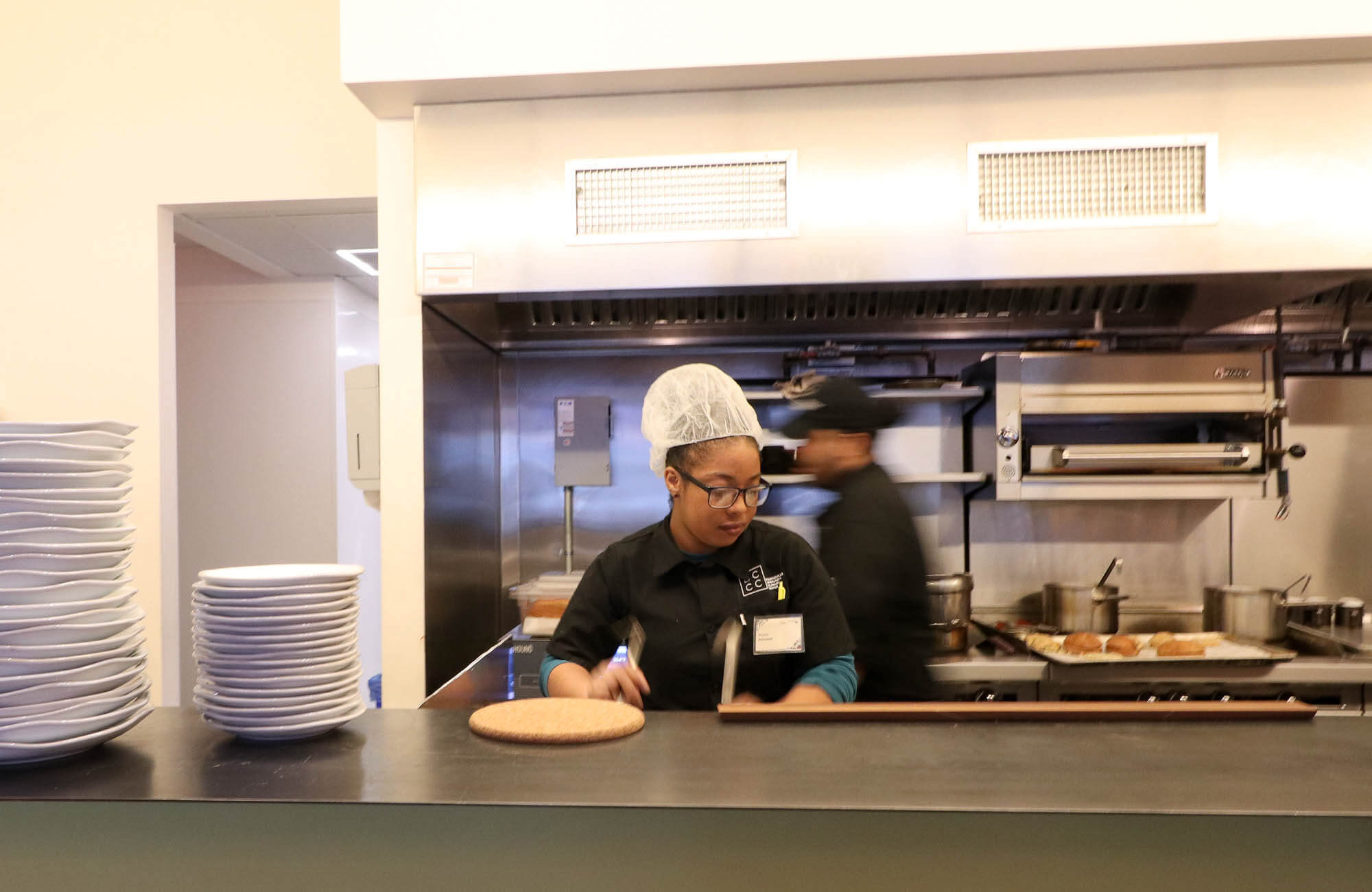
The nonprofit training center, eatery and bakery, which recently opened in a double-wide storefront space at 69 Belmont Avenue, offers job training to Brownsville residents, fresh food at reasonable prices, and community space for local nonprofits. (The training program debuted in June, followed by the eatery in August.)
The menu seems fairly simple — items include a carrot and peanut salad, Caribbean fish soup, ribs, and Bville Cheesesteak — but the food is extra delicious; clearly there is more at work here than meets the eye.
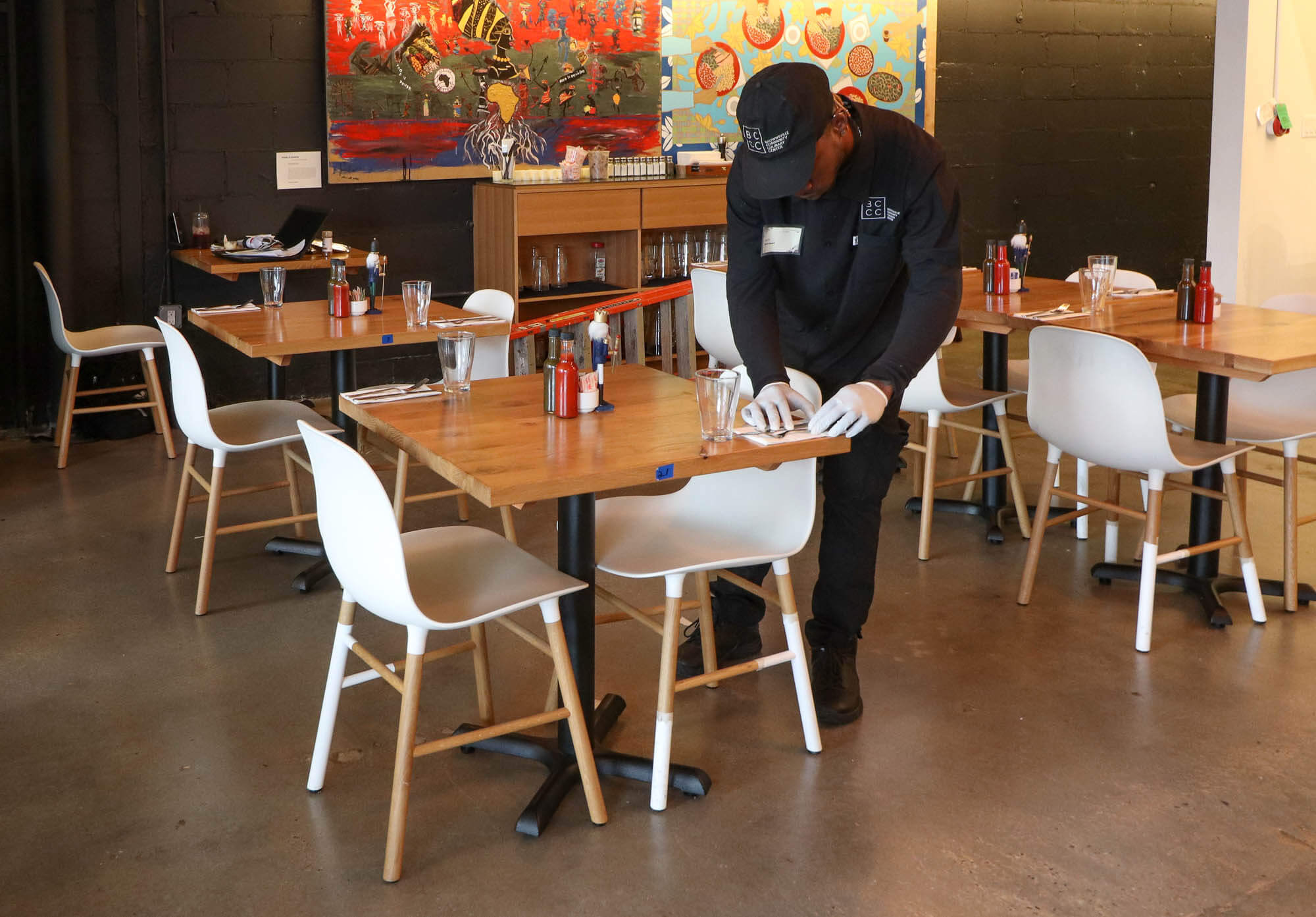
Everything is made from scratch, including biscuits and dense loaves of Danish rye bread. The kale in the kale biscuit comes from five nearby gardens and farms run by the Isabahlia Ladies of Elegance Foundation, whose founder is on BCCC’s advisory board. The flour is milled on the premises.
On a recent morning, a “family meal” set up in the rear of the cellar where staff and trainees could help themselves consisted of French toast with blueberry compote, sausage, mashed potatoes flecked with bits of potato skin, and gravy.
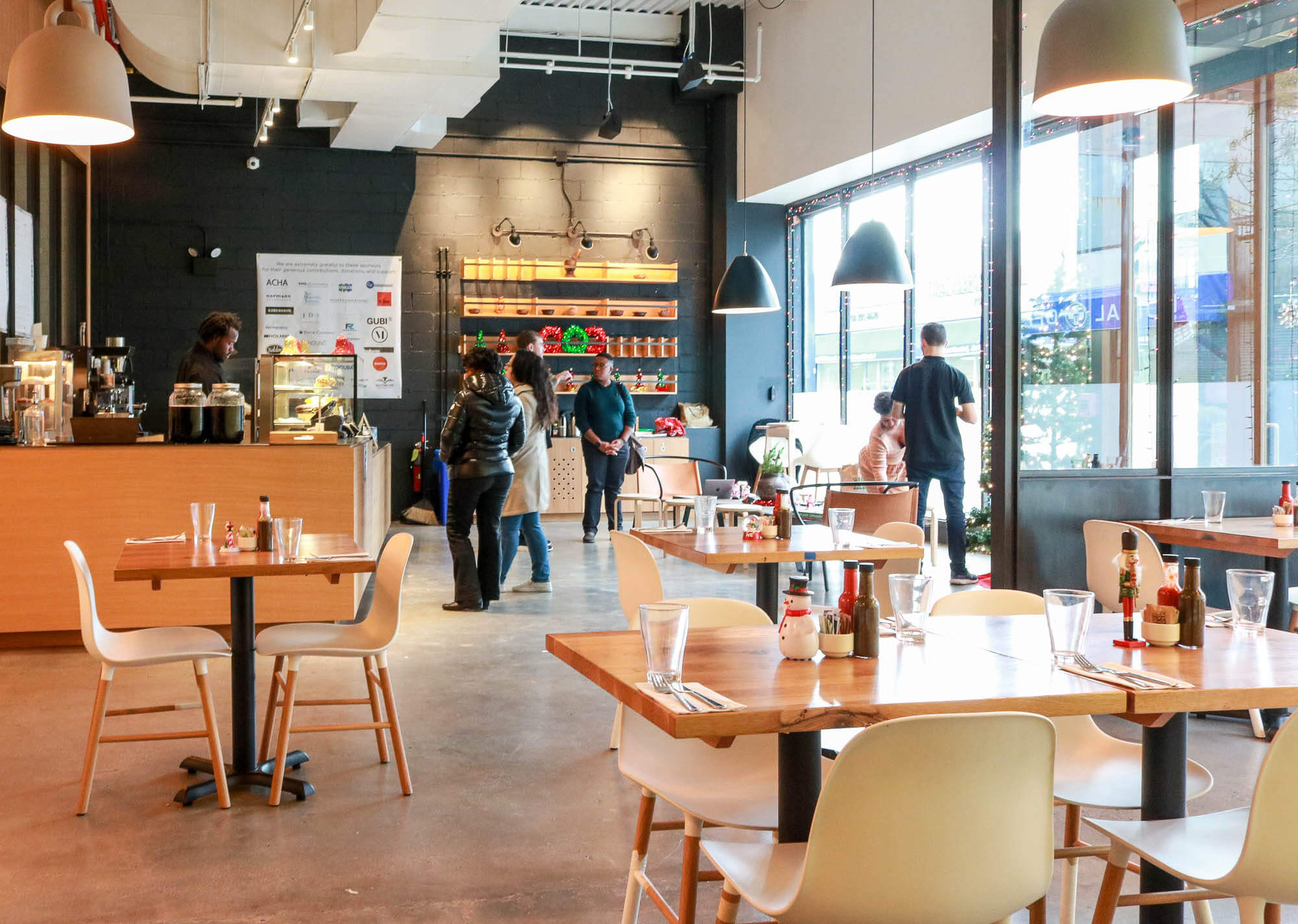
If quality is high, prices are low — about what you might pay at a Halal truck or steam-table Spanish cafeteria. A biscuit is $1.25, a pulled-chicken sandwich is $5. The most expensive item on the menu, the 5-Spice Pork Ribs, served with Chinese Greens, Baby Corn, Tomato and Rice Cakes, is $12.
Even so, those with a SNAP card (short for Supplemental Nutrition Assistance Program, or food stamps) receive a 50 percent discount; tipping is not allowed.

The service is not particularly swift — they are in training, after all. A steady trickle of construction and office workers on their lunch break order at the counter for takeout or sit at the tables in small groups.
The enterprise bills itself as the first restaurant with table service in Brownsville in decades, although it’s mostly a breakfast and lunch spot. The hours are Tuesday through Friday from 7 a.m. to 6 p.m. and Saturdays from 10 a.m. to 4 p.m.
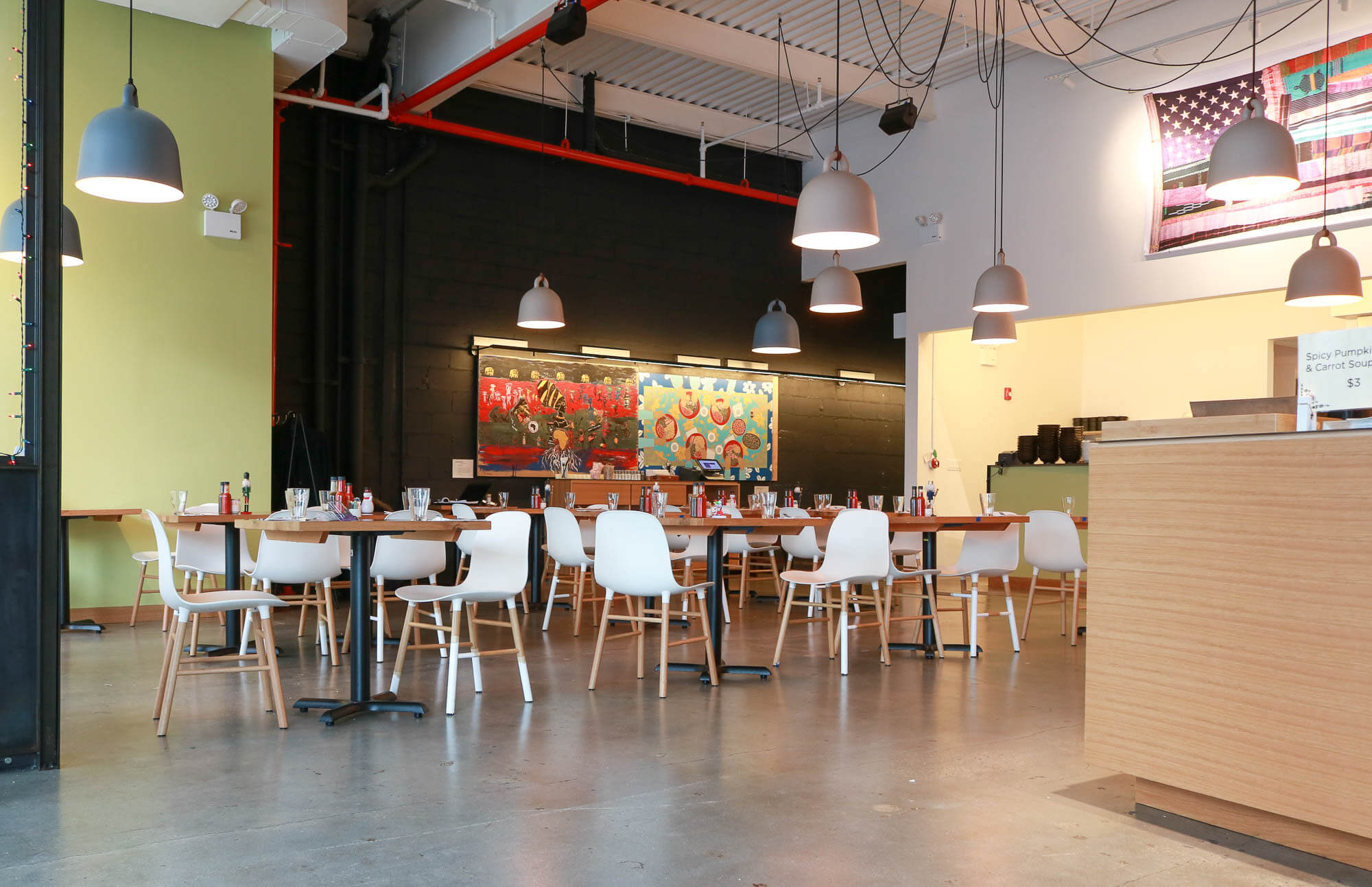
The monthly open-mic gospel Sunday suppers have been packed, and it’s also a popular spot for birthday parties, Executive Director Philip Hoffman told Brownstoner.
Hoffman, who has decades of experience in the food industry, used to teach cooking and life skills as a volunteer at Rikers. Coincidentally, his grandparents lived in Brownsville in the 1920s, back when it was a Jewish neighborhood.
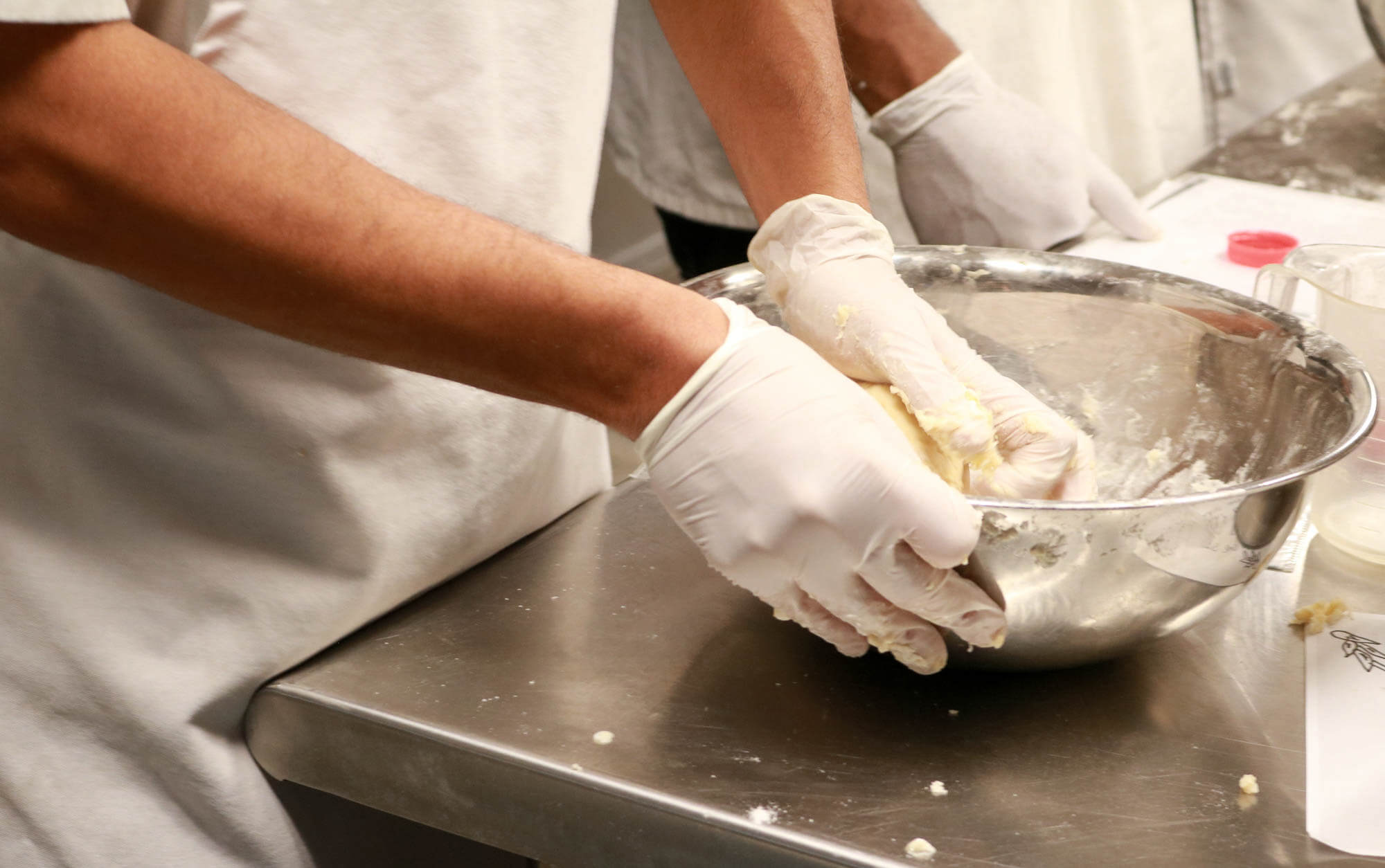
The menu “is inspired by the history of the African Diaspora,” in the words of the group’s website; a Scandinavian influence can also be detected in the fresh dill in the Caribbean fish soup and various items such as the baked goods.
“We put a little Claus DNA in what we do,” said Hoffman, referring to Claus Meyer, the well-known restaurateur who founded The Melting Pot Foundation, which operates BCCC.
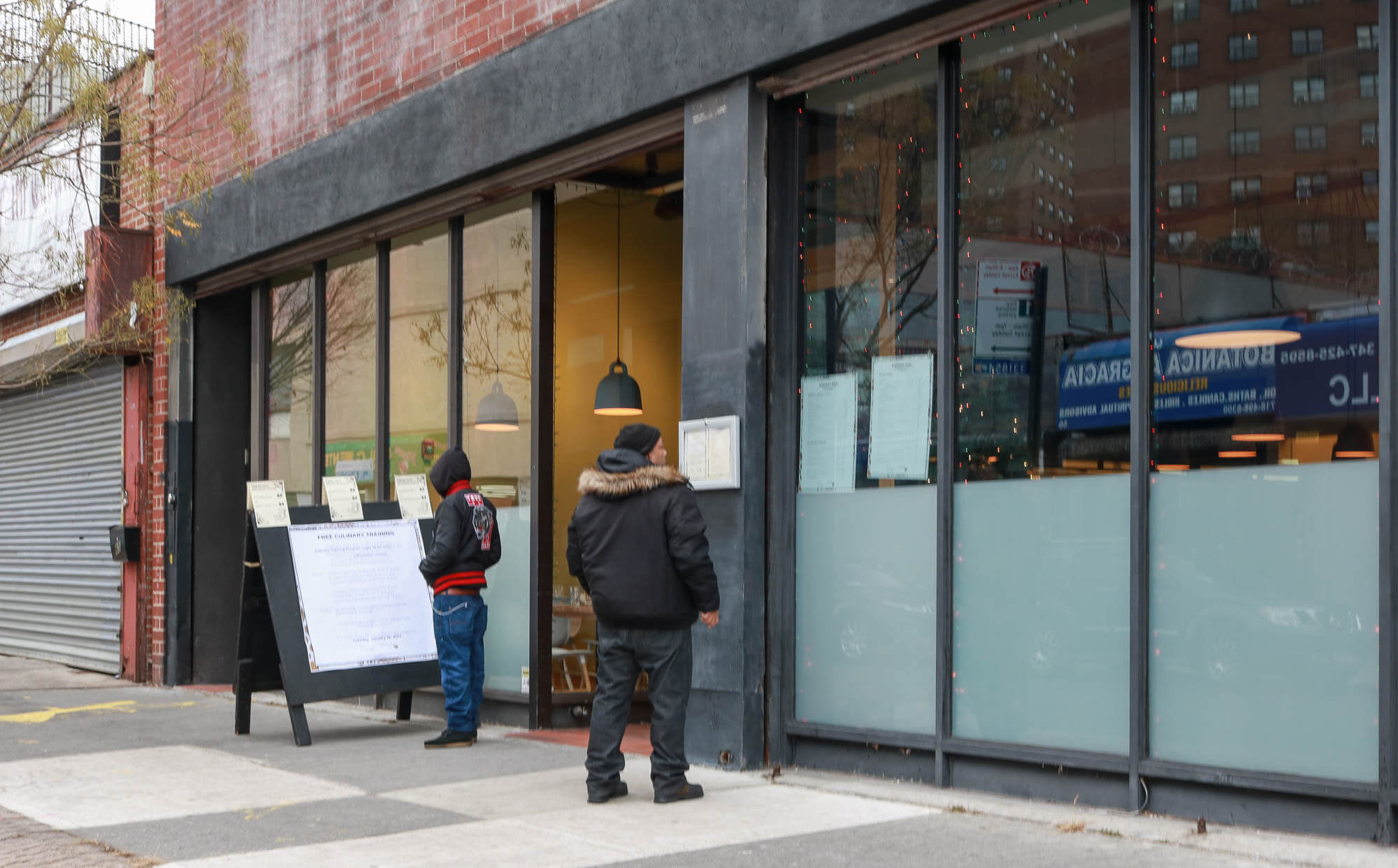
BCCC’s income comes through private donations, foundation grants, fundraising, and profits from Meyer’s coffee roasting company, Brownsville Roasters (which, despite the name, is actually located in Red Hook). The plan is to make BCCC self sustaining in a few years.
The 10,000-square-foot space was created over a year by architects, builders and others who donated their services. There are murals, concrete block walls, bentwood stools and tables made of reclaimed wood and steel.
The center will also host a streaming radio station “as soon as we get it funded,” said Hoffman.
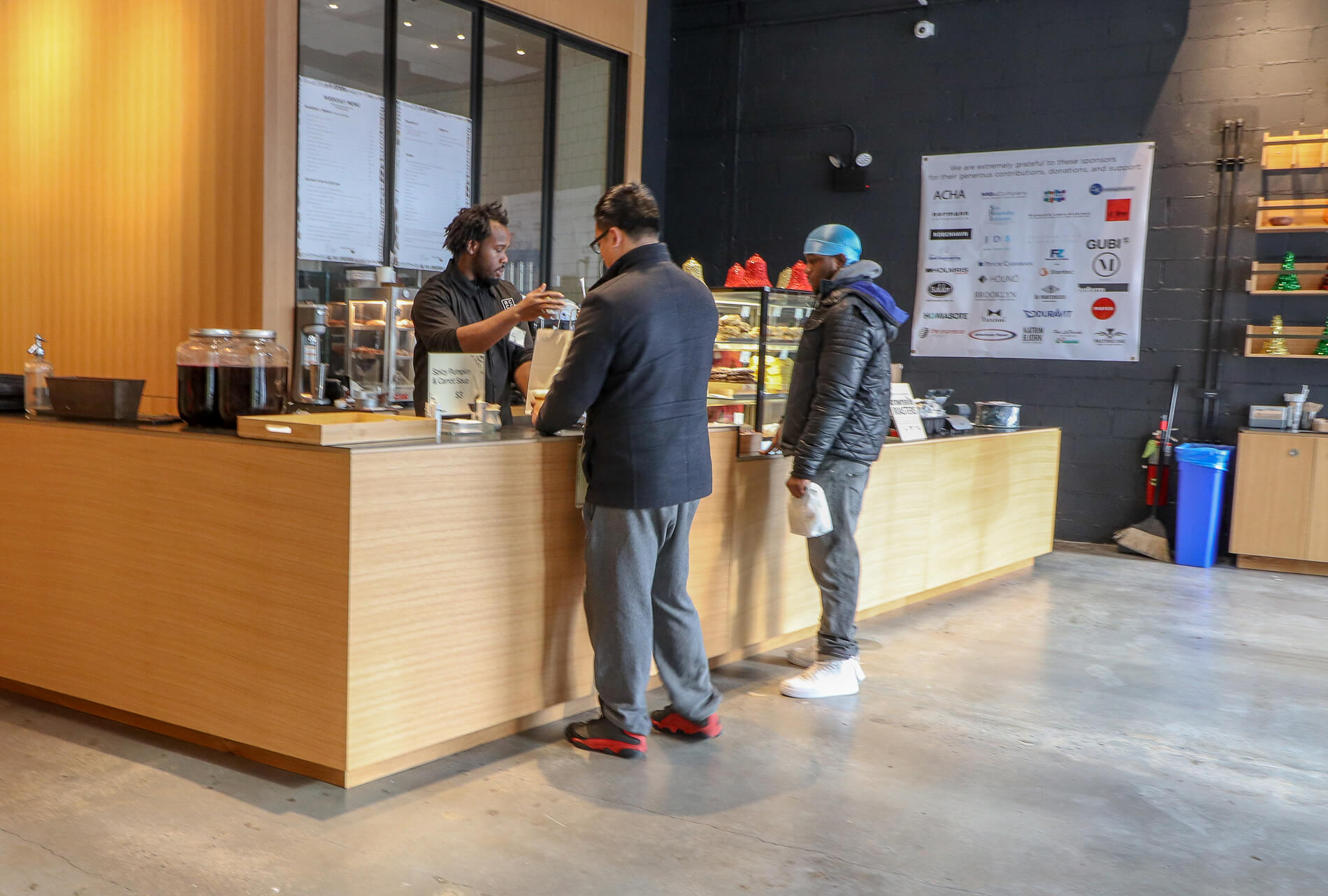
The participants — 30 at any given time, about 50 per year — are paid a stipend of $11 an hour; the training program lasts 40 weeks, culminating with an “outership” in a for-profit restaurant.
The program has two social workers to help with “the life challenges of the participants,” in Hoffman’s words. Before the eatery even opened, one of the participants was killed in a senseless shooting, as the New York Times detailed.
Although crime has gone down dramatically since the 1990s, Brownsville nonetheless has one of the highest violent crime rates in the city.
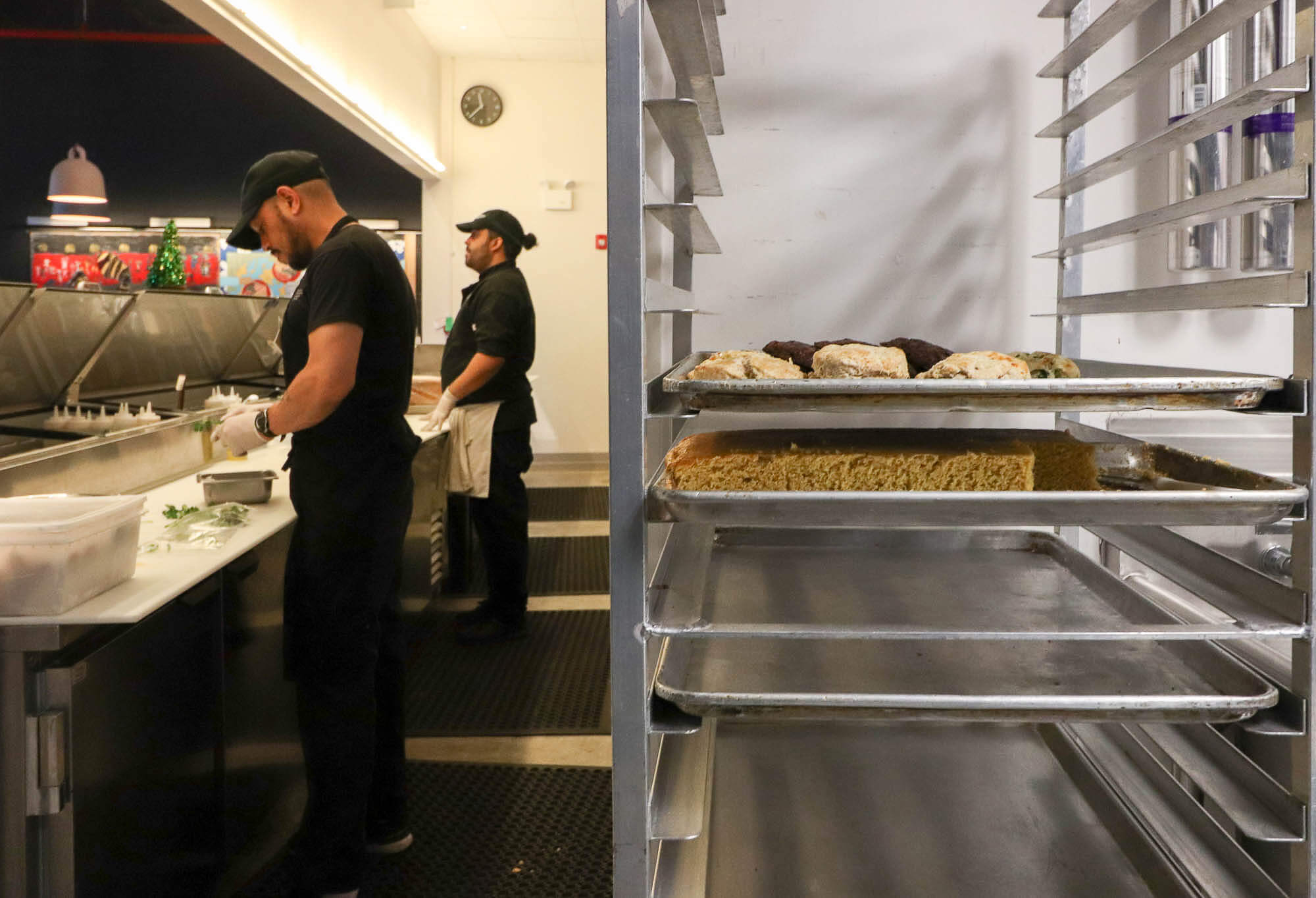
The culinary program — it’s not a school, Hoffman stressed — now has a waiting list. “We accept people who have a passion for the business or who we think can develop a passion for the business and we can engage and mentor,” he explained.
“We’re seeing if we can try to change some lives. Forty, 50, 60 lives a year is the goal,” he said.
“It’s transformed me in ways,” he added.
[Photos by Susan De Vries]
Related Stories
- The Glamorous, Magical Fantasy World of Loew’s Pitkin Avenue Theater
- Affordable Housing Lottery Opens for 64 New Units in Brownsville Starting at $670 a Month
- To Solve Housing Crisis, Build Communities First, Says Ocean Hill-Brownsville Priest
Email tips@brownstoner.com with further comments, questions or tips. Follow Brownstoner on Twitter and Instagram, and like us on Facebook.

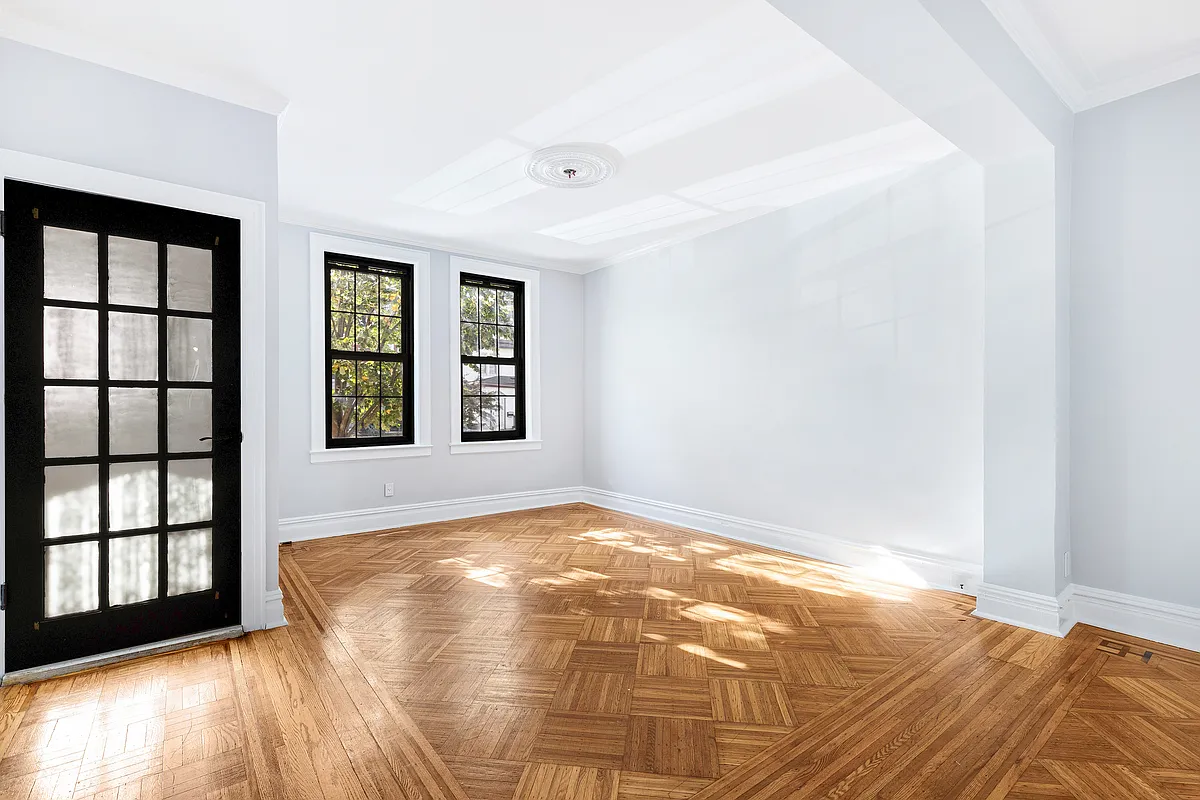

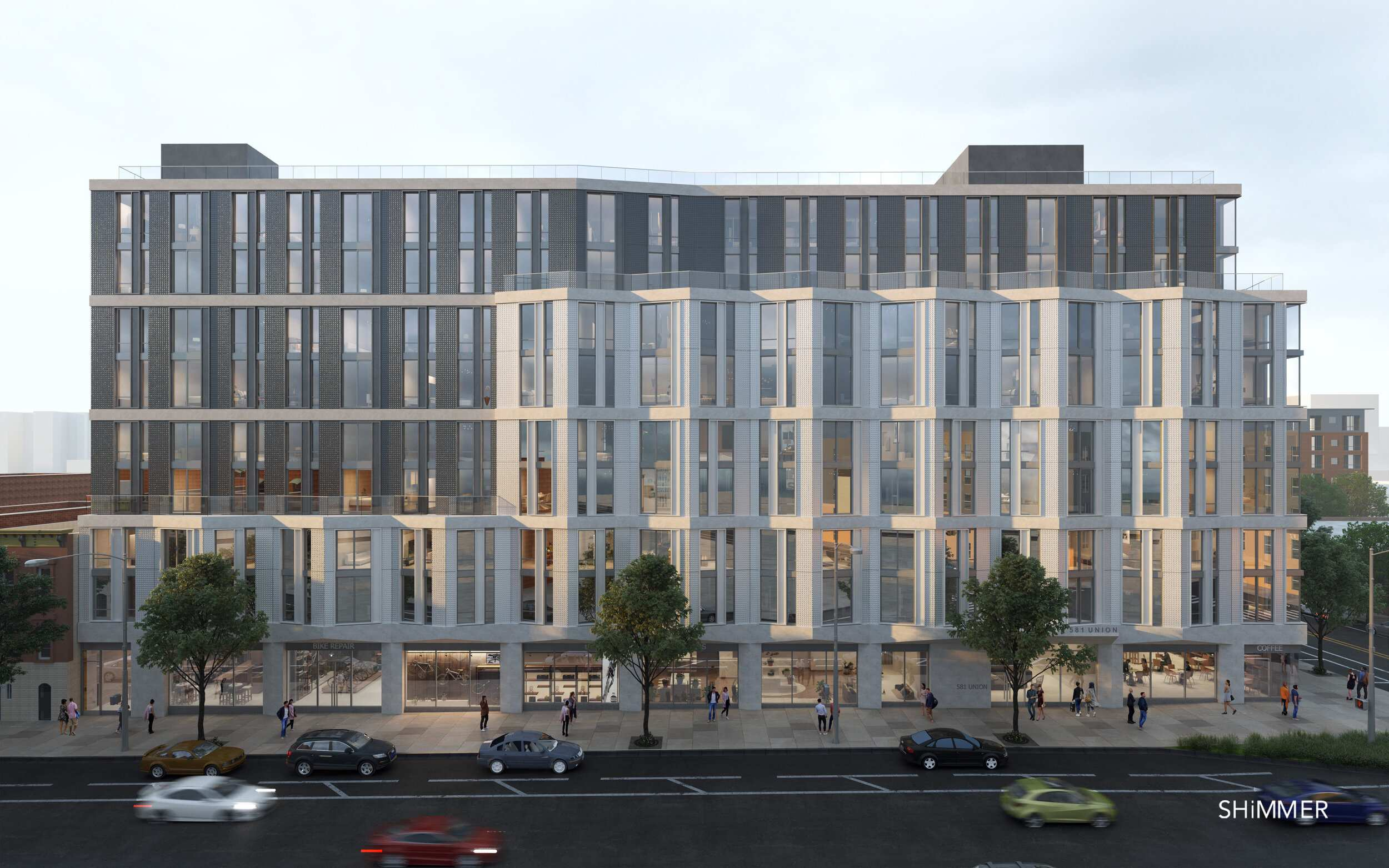
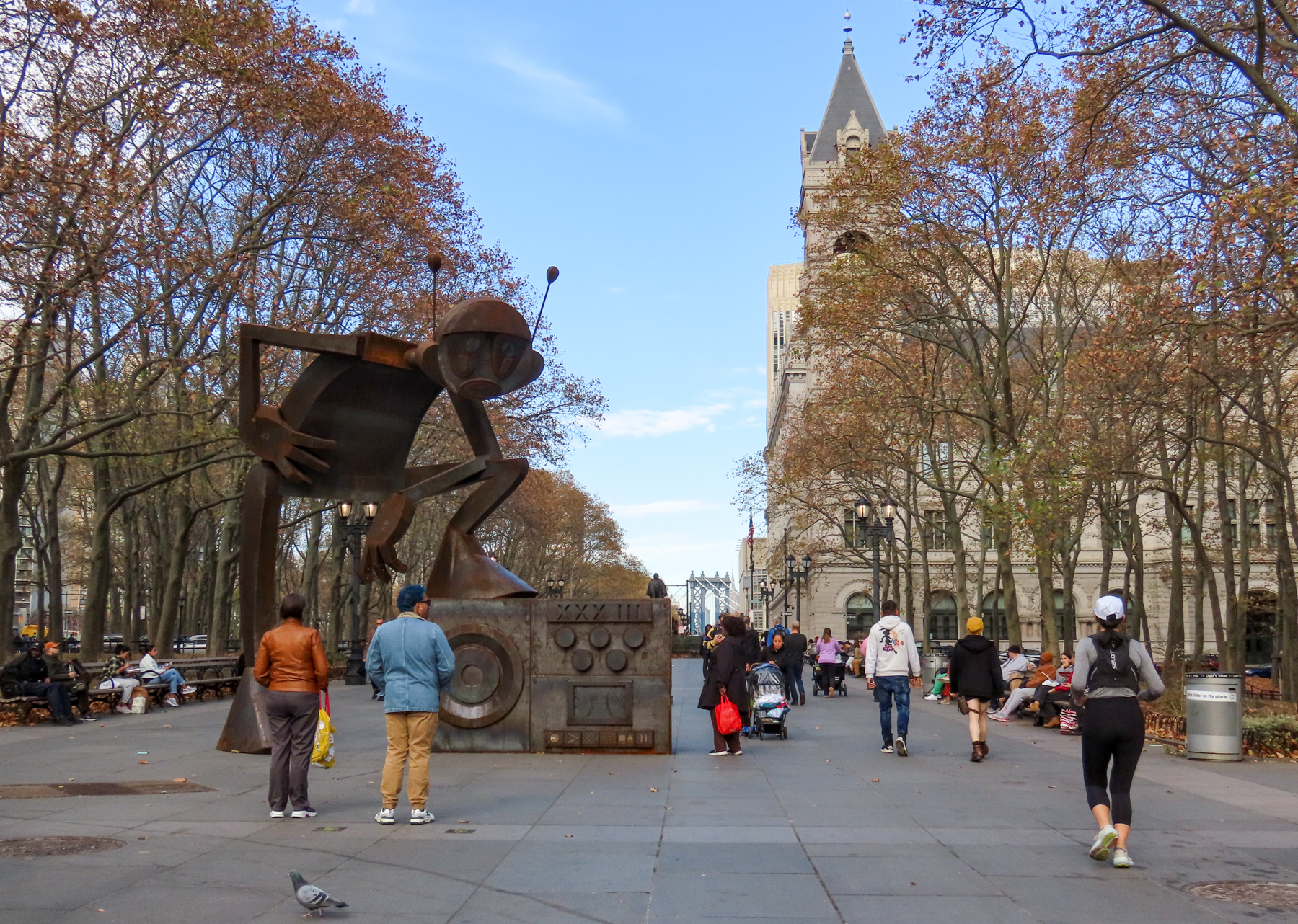




What's Your Take? Leave a Comment